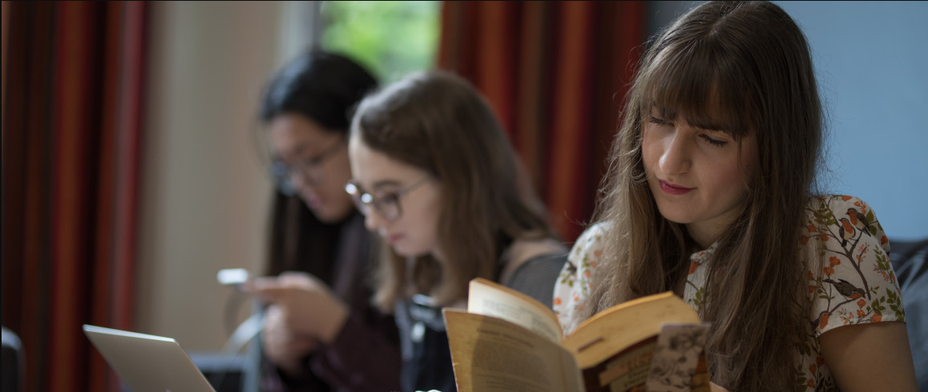
ARABIC
Overview
An Arabic course offers comprehensive language instruction, focusing on reading, writing, speaking, and listening skills. It includes lessons on grammar, vocabulary, pronunciation, and syntax. Many courses also promote cultural elements, such as traditions, history, and literature, providing a deeper understanding of Arabic-speaking regions.
Objectives
- Language Proficiency
- Grammar and Syntax Mastery
- Vocabulary Building
- Cultural Understanding
- Literary Knowledge
- Preparation for Proficiency Exams
Prerequisites
- Certain age requirement
- No Prior Knowledge Required
Curriculum Outline
- Introduction to Arabic Culture
- Humanities Toolkit
- Arabic Dialects
- Languages of the World
- Introduction to the History of the Middle East
- The Art of Storytelling
- Languages of the World
- Classical Arabic: Biography, History and Travel
- Rethinking Middle East History
- Islamic Architecture: Spaces and their Interpretation
- Environmental Humanities
- Literatures of Love, Loss and Desire
- Film Cities
- Classical Arabic: Biography, History and Travel
- Capstone Project
- Quran and Hadith Studies
- Politics and Aesthetics in Modern Arabic Literature
- Cinemas of the Middle East and North Africa
- Modern Palestinian Literature
Teaching Method
- Communicative Language Teaching
- Task-Based Learning
- Grammar-Translation Method
- Focus on Speaking and Listening
Modules
- Arab Culture
- Introductory Arabic
- Intermediate Arabic for Heritage Learners
- Introductory Egyptian Colloquial Arabic
- Intermediate Arabic
- Advanced Arabic for Heritage Learners
- Arabs in Western Literature and Arts: Reception and Interpretation
- Advanced Arabic Reading I: Reading the Sacred and the Legendary
- Advanced Arabic Reading II: Literary Journeys into the Past
- Advanced Arabic
Assessment Methods
- Quizzes and Tests
- Oral Assessments
- Written Assignments
- Reading Comprehension Tests
- Listening Comprehension Tests
- Project-Based Assessments
- Final Exams
- Portfolio Assessment
- Self-Assessment and Reflection
Course Duration
The course duration may vary by institution and location. In the UK, full-time study can take about 3 to 4 years, and part-time can take about 4 to 6 years.
Facilities
- Traditional Classrooms
- Language Labs
- Virtual Learning Environments (VLEs)
- Online Dictionaries and Resources
- Digital and Physical Libraries
- Audio/Visual Materials
- Writing and Language Support Centres
- Interactive Software
- Language Learning Websites
Career pathways
- Arabic Translator
- Freelance Translator/Interpreter
- Arabic Interpreter
- Diplomat/Foreign Service Officer
- International Relations Specialist
- Arabic Language Teacher
- Arabic Literature Professor
- Language Tutor
- Arabic Language Journalist
- Tour Guide
- Travel Consultant
Fees and Fundings
The fees depend on the institute and location. However, in the UK, the tuition fees for international students can lie between £15,000 and £25,000 per year for undergraduate programmes.
Entry Requirements
- A-Levels or Higher Secondary Certificate
- Personal Statement
- References
Field Work and Internships
- Translation and Interpretation Internships
- Cultural Immersion Programmes
- NGO and Humanitarian Internships
- Journalism and Media Internships
- Government and Diplomatic Internships
- Education and Language Teaching Internships
- Corporate and Business Internships
- Tourism and Hospitality Internships
Certifications
- ALPT (Arabic Language Proficiency Test)
- ACTFL (American Council on the Teaching of Foreign Languages)
- CILS (Certificazione di Italiano come Lingua Straniera)
- CEFR (Common European Framework of Reference for Languages)
- University-Based Arabic Proficiency Certifications
- DLPT (Defense Language Proficiency Test)
- Arabic Language Teaching Certifications
- International Arabic Language Test (IALT)
Intakes
In the UK, the primary intake happens in September/October, and the secondary intake happens in January/February.
Student Testimony
“For me, the BA in Middle Eastern Studies is perfect - it gives you all round skills, and a sense of cultural awareness. You can also really tailor the degree to yourself. I especially like the Arabic literature courses. Knowing the original language allows you to access this written heritage and the rich stories within it. On my year abroad I went to Morocco and studied at a language school, which massively boosted my speaking ability. The teachers really make FAMES. The teaching groups are small, so you really get to know them and you form personal relationships. I still…” [Paula Stuurman from the University of Cambridge]
Frequently asked questions
Mastering Arabic to an advanced level in reading, writing, and speaking will place you in a competitive position, opening doors to various career opportunities where Arabic proficiency is highly sought after.